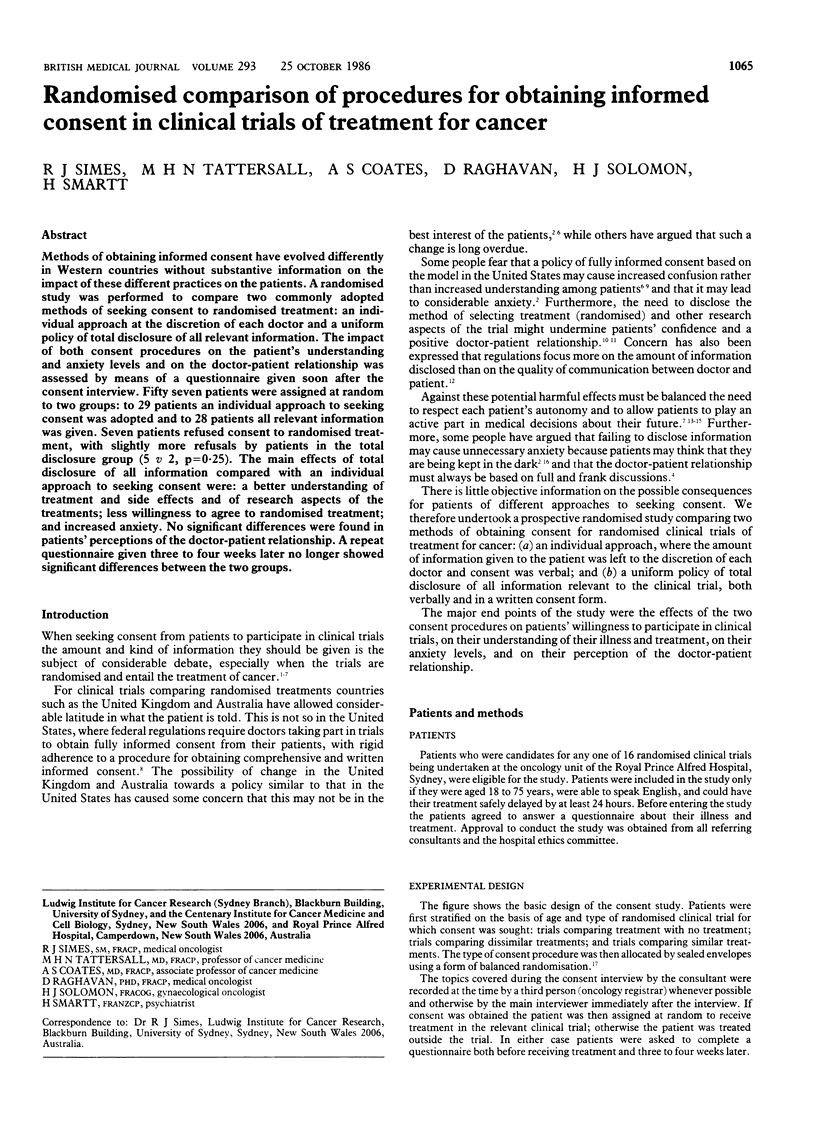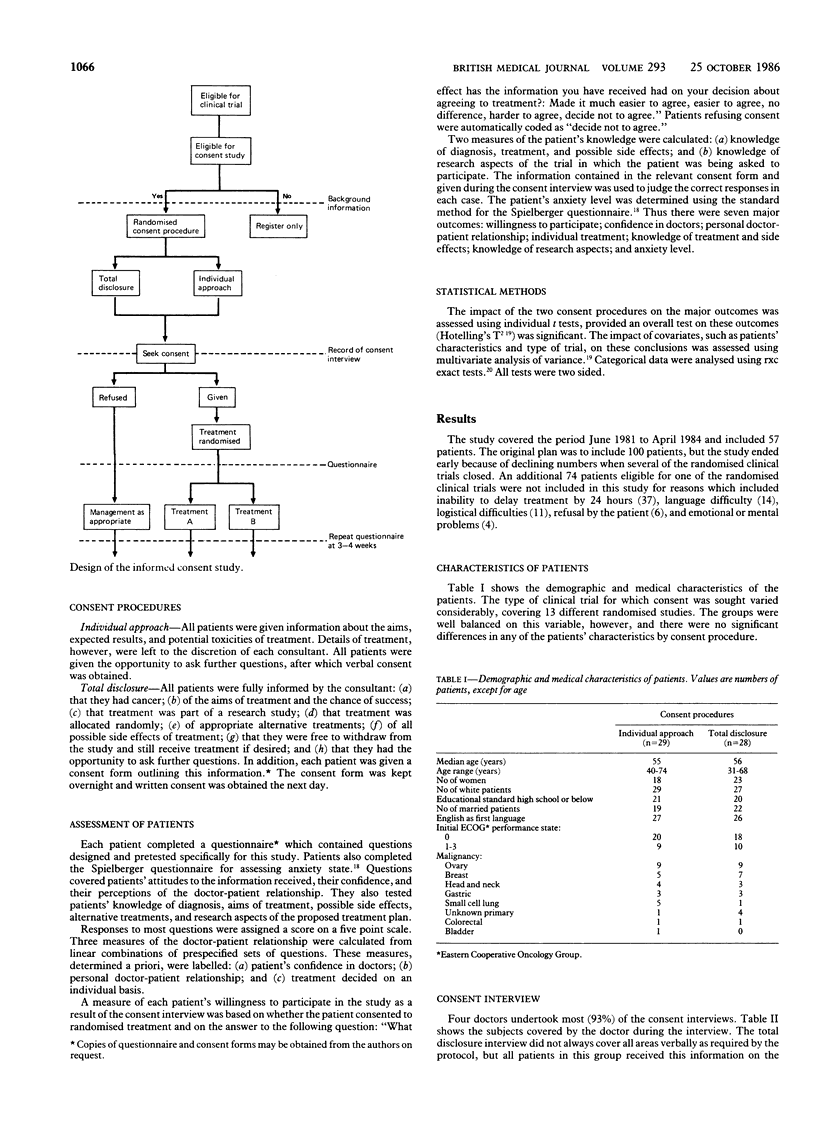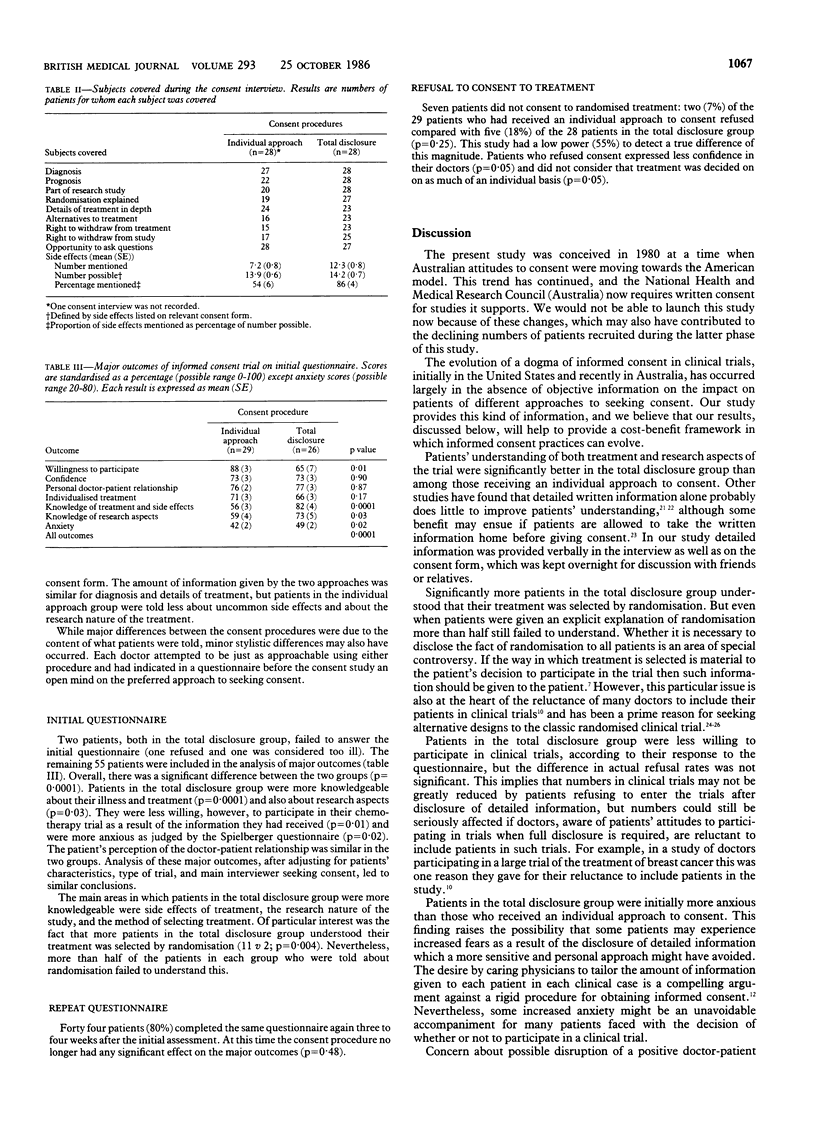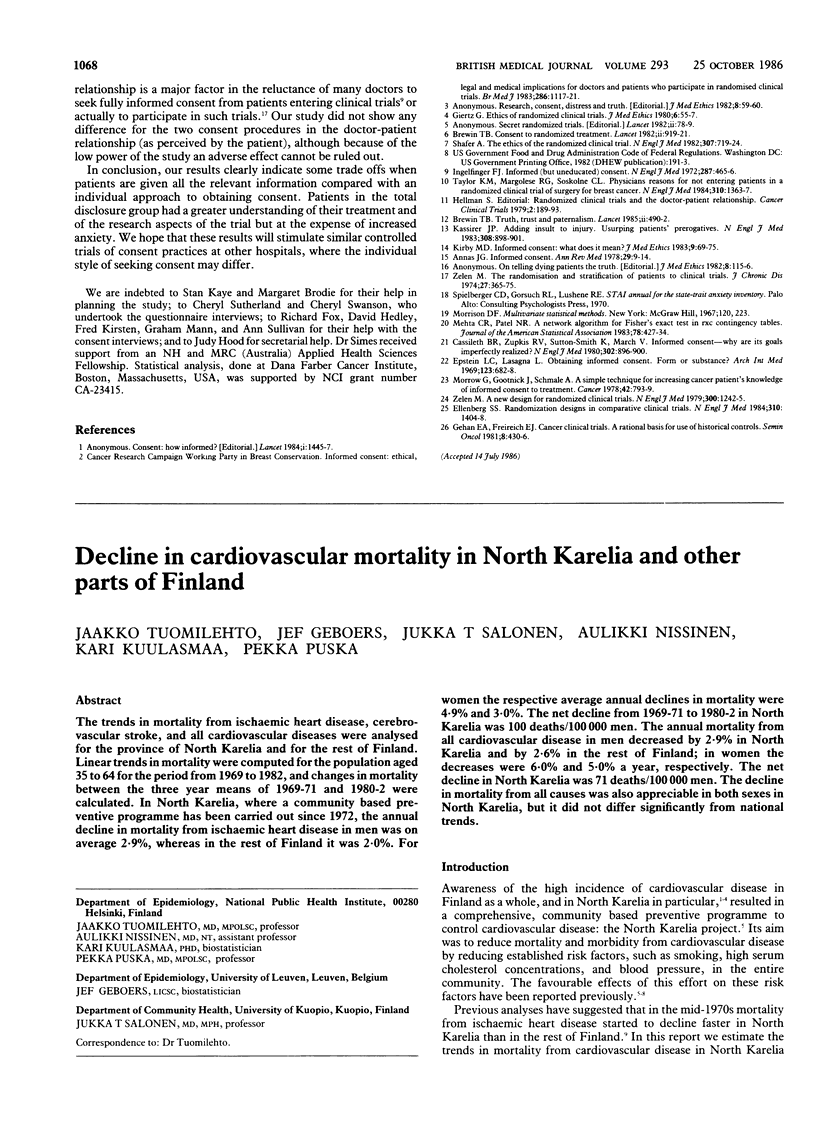Abstract
Methods of obtaining informed consent have evolved differently in Western countries without substantive information on the impact of these different practices on the patients. A randomised study was performed to compare two commonly adopted methods of seeking consent to randomised treatment: an individual approach at the discretion of each doctor and a uniform policy of total disclosure of all relevant information. The impact of both consent procedures on the patient's understanding and anxiety levels and on the doctor-patient relationship was assessed by means of a questionnaire given soon after the consent interview. Fifty seven patients were assigned at random to two groups: to 29 patients an individual approach to seeking consent was adopted and to 28 patients all relevant information was given. Seven patients refused consent to randomised treatment, with slightly more refusals by patients in the total disclosure group (5 v 2, p = 0.25). The main effects of total disclosure of all information compared with an individual approach to seeking consent were: a better understanding of treatment and side effects and of research aspects of the treatments; less willingness to agree to randomised treatment; and increased anxiety. No significant differences were found in patients' perceptions of the doctor-patient relationship. A repeat questionnaire given three to four weeks later no longer showed significant differences between the two groups.
Full text
PDF



Selected References
These references are in PubMed. This may not be the complete list of references from this article.
- Annas G. J. Informed consent. Annu Rev Med. 1978;29:9–14. doi: 10.1146/annurev.me.29.020178.000301. [DOI] [PubMed] [Google Scholar]
- Brewin T. B. Consent to randomised treatment. Lancet. 1982 Oct 23;2(8304):919–921. doi: 10.1016/s0140-6736(82)90877-7. [DOI] [PubMed] [Google Scholar]
- Cassileth B. R., Zupkis R. V., Sutton-Smith K., March V. Informed consent -- why are its goals imperfectly realized? N Engl J Med. 1980 Apr 17;302(16):896–900. doi: 10.1056/NEJM198004173021605. [DOI] [PubMed] [Google Scholar]
- Epstein L. C., Lasagna L. Obtaining informed consent. Form or substance. Arch Intern Med. 1969 Jun;123(6):682–688. [PubMed] [Google Scholar]
- Gehan E. A., Freireich E. J. Cancer clinical trials. A rational basis for use of historical controls. Semin Oncol. 1981 Dec;8(4):430–436. [PubMed] [Google Scholar]
- Ingelfinger F. J. Informed (but uneducated) consent. N Engl J Med. 1972 Aug 31;287(9):465–466. doi: 10.1056/NEJM197208312870912. [DOI] [PubMed] [Google Scholar]
- Kassirer J. P. Adding insult to injury. Usurping patients' prerogatives. N Engl J Med. 1983 Apr 14;308(15):898–901. doi: 10.1056/NEJM198304143081511. [DOI] [PubMed] [Google Scholar]
- Kirby M. D. Informed consent: what does it mean? J Med Ethics. 1983 Jun;9(2):69–75. doi: 10.1136/jme.9.2.69. [DOI] [PMC free article] [PubMed] [Google Scholar]
- Morrow G., Gootnick J., Schmale A. A simple technique for increasing cancer patients knowledge of informed consent to treatment. Cancer. 1978 Aug;42(2):793–799. doi: 10.1002/1097-0142(197808)42:2<793::aid-cncr2820420252>3.0.co;2-c. [DOI] [PubMed] [Google Scholar]
- Taylor K. M., Margolese R. G., Soskolne C. L. Physicians' reasons for not entering eligible patients in a randomized clinical trial of surgery for breast cancer. N Engl J Med. 1984 May 24;310(21):1363–1367. doi: 10.1056/NEJM198405243102106. [DOI] [PubMed] [Google Scholar]
- Zelen M. A new design for randomized clinical trials. N Engl J Med. 1979 May 31;300(22):1242–1245. doi: 10.1056/NEJM197905313002203. [DOI] [PubMed] [Google Scholar]
- Zelen M. The randomization and stratification of patients to clinical trials. J Chronic Dis. 1974 Sep;27(7-8):365–375. doi: 10.1016/0021-9681(74)90015-0. [DOI] [PubMed] [Google Scholar]


